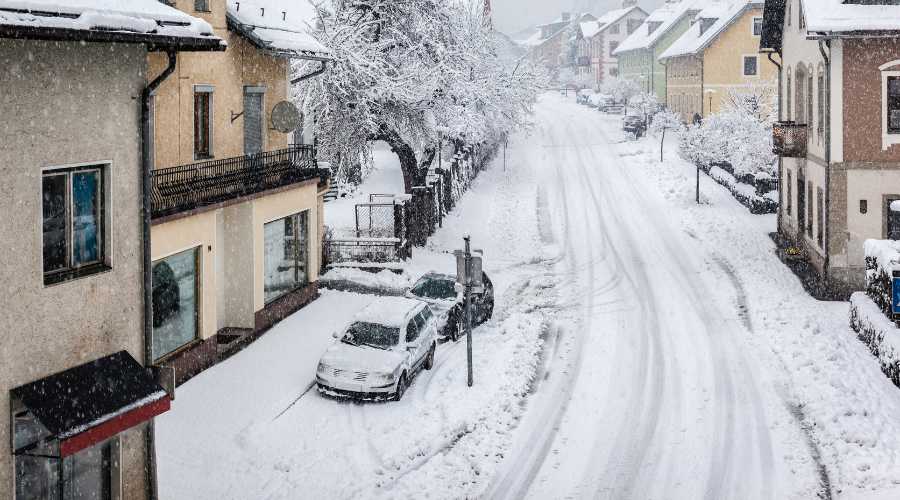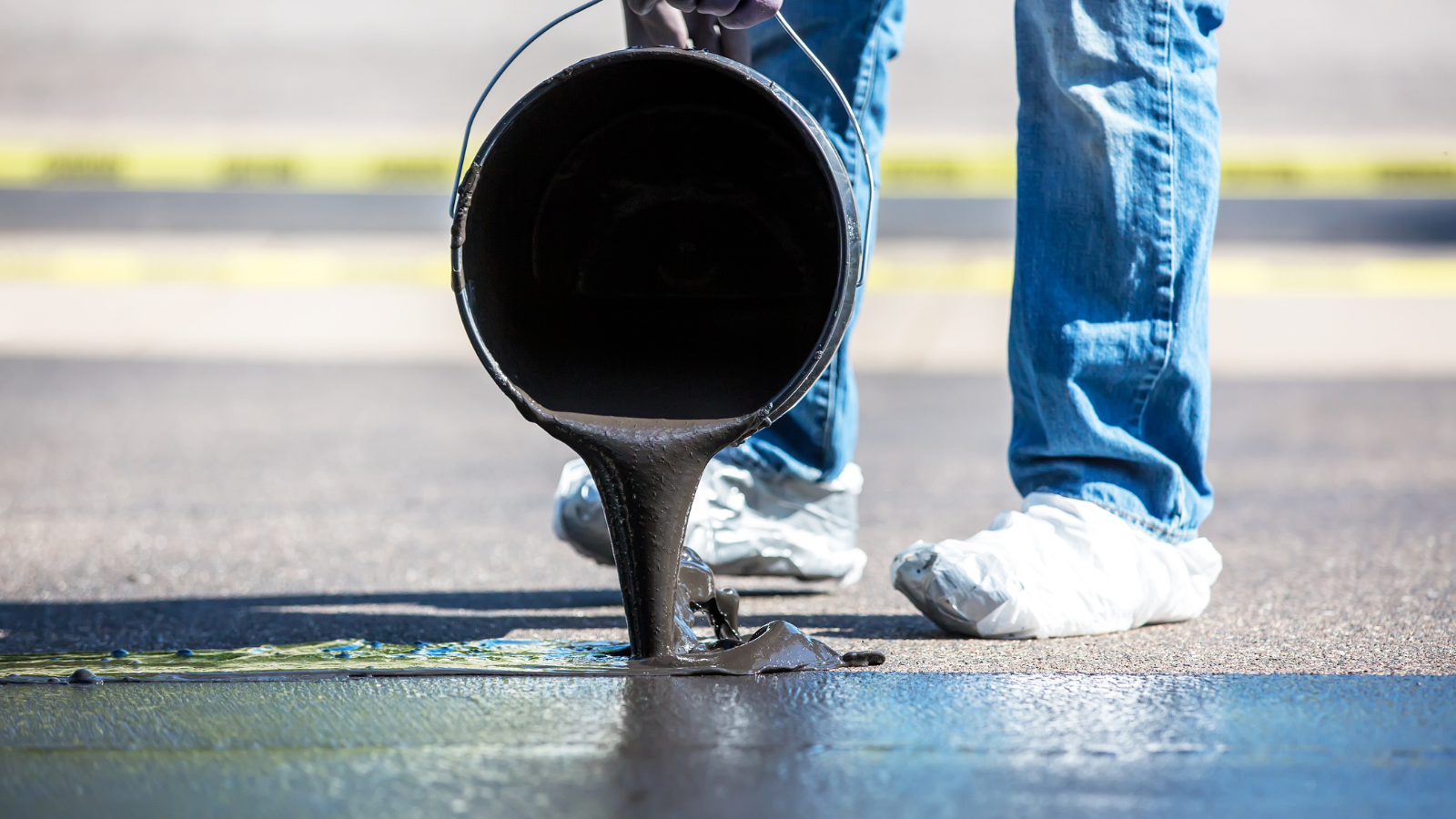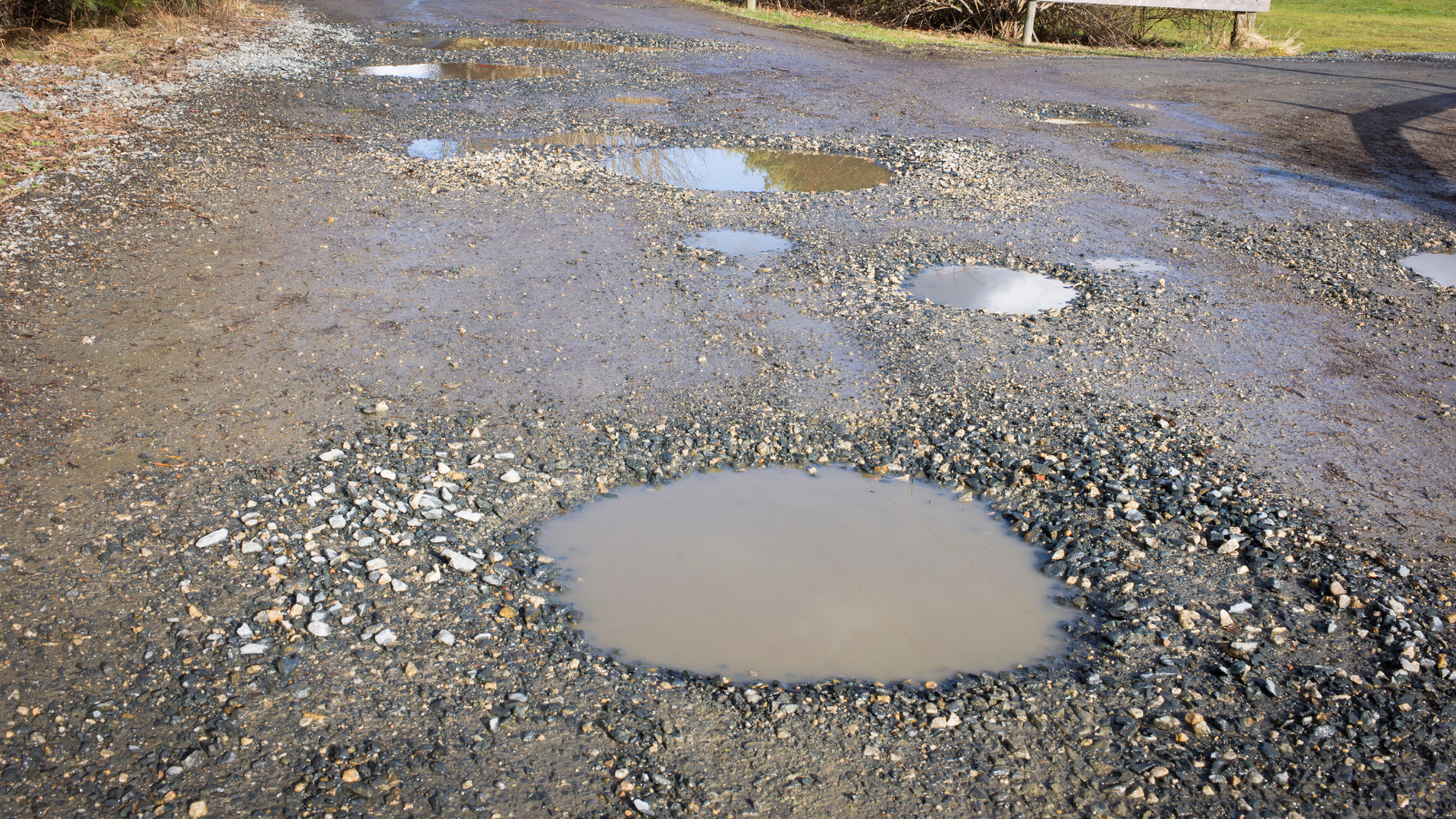Concrete driveways are like the unsung heroes of our homes. They endure cars, people walking on them, and all sorts of weather without complaining. Even though they are strong, they are not invincible against nature’s challenges. This guide discusses how the weather can impact concrete driveways.
We explore what happens when it freezes, snows, or becomes icy and how these conditions can affect the driveways, making them last longer or requiring more care. This information is helpful for homeowners who want to maintain their driveways in good condition for a long time.
Choose Elizabeth Paving for superior paving services, guaranteeing on-time, quality work with a personal touch. Owners actively oversee each job for excellence.
The Significance of Concrete Driveways and the Effect of Weather
Concrete driveways do more than look good; they’re essential for your property. They add value and make your home look better. But it can be harsh on them when the weather gets tough—hot, freezing, rainy, or snowy. Weather can affect how strong and long-lasting the driveway is. I
t’s essential to understand how weather and driveways interact. This guide looks into how different weather can impact concrete driveways. This helps homeowners know how to take care of their driveways to stay in good shape for a long time.
The Effects of Weather on Concrete Driveways
The way weather affects concrete driveways is a big deal, especially when it gets freezing. Concrete has tiny holes; when water goes in and freezes, it makes those holes bigger, causing cracks. This happens over and over in what’s called freeze-thaw cycles, making the driveway weaker each time.
It’s not just about how it looks; it can hurt how strong the driveway is. Homeowners need to know how freezing weather works with concrete driveways. This helps them take action early to fix any issues and ensure their driveways last a long time.
Impact of Freezing and Thawing
It’s a big deal when freezing and thawing happen to concrete driveways. They go through a cycle where they get stressed and become vulnerable.
When it freezes, the concrete gets smaller, and when it thaws, it expands. This happening over and over makes the driveway surface crack and eventually break. These cracks are like doors for water to get in and make things worse.
Water not only makes the cracks bigger but also can harm how strong the driveway is. Homeowners need to know about this process so they can do things to stop it and keep their concrete driveways strong, significantly when the weather changes a lot.
Moisture Presence Births Mold and Mildew
Water in the cracks of concrete driveways isn’t just a structural issue—it’s a great spot for mould and mildew to grow. The moisture in the cracks makes a perfect environment for these unwanted invaders to spread. Mold and mildew not only make the driveway look bad but can also harm your health.
Breathing in their spores can cause respiratory issues and allergies, an added concern for homeowners. Fixing moisture issues is essential for the driveway’s appearance and ensuring the area around your home stays safe and healthy.
The Impact of Temperature and Humidity
Homeowners need to think about how temperature and humidity affect concrete driveways. The driveways break down faster when the temperature goes up and down a lot, especially with high humidity. The driveway’s surface keeps expanding and contracting because of these changes, putting a lot of stress on it.
This stress makes the driveway weaker and more likely to get cracks and eventually break apart. Homeowners need to understand how temperature and humidity work with concrete driveways. This helps them do things to prevent problems and make sure their driveways last a long time and stay strong.
Winter Precipitation and Your Driveways
The challenges posed by Winter Precipitation extend beyond temperature considerations—snow and ice accumulation present immediate threats to the integrity of driveways. The weight of accumulated snow, coupled with the formation of ice, exerts immense pressure on the driveway surface. This formidable force can lead to structural damage, compromising the overall stability of the driveway.
Beyond structural concerns, the presence of ice also creates hazardous conditions for navigation. Understanding the specific challenges posed by winter precipitation is essential for homeowners, guiding them in adopting proactive measures to safeguard their driveways against potential damage and ensuring a safe passage during the colder months.
Driveways Damage
Weather can cause problems for driveways, like cracks, holes, and uneven surfaces. If these issues aren’t fixed, they can worsen and become expensive repairs or even require the whole driveway to be replaced. Cracks not only make the driveway look bad but also weaken its structure.
Potholes are not just unattractive; they can be unsafe and worsen damage. It’s crucial to realize that ignoring these driveway issues can lead to more significant problems. Taking action early and regularly taking care of the driveway can help prevent weather-related damage, ensuring it lasts long and stays in good shape.
Driveways Repair
Fixing driveways is crucial for keeping them in good shape. It’s like taking care of things before they become big problems. Doing repairs on time helps driveways last longer and work well. Fixing things like cracks and holes and sealing the surface can stop damage caused by weather.
These repairs not only make the driveway look better but also make it stronger. Having a routine to check and fix things regularly lets homeowners be in control and avoid more significant issues. It ensures that driveways not only look nice but also stay strong against the changing weather conditions.
Driveway Winter Maintenance and Repair Tips
- Regular Inspection: Check for cracks, potholes, and surface irregularities frequently, especially before and after the winter season.
- Snow Removal: Clear snow promptly using non-abrasive tools to prevent surface damage.
- De-Icing Agents: Use de-icing products sparingly and opt for non-corrosive alternatives to protect the driveway.
- Sealing: Apply a quality sealant to safeguard the surface against moisture penetration.
Knowing how weather affects concrete driveways is essential for making them last. Homeowners can do things like regular maintenance, fix issues on time, and take precautions in winter to keep their driveways in good condition. This makes the driveway look nice and ensures it stays safe and lasts a long time, no matter what the weather is like. Taking care of your driveway is like ensuring it’s a good and reliable path to your home, and that’s important.







